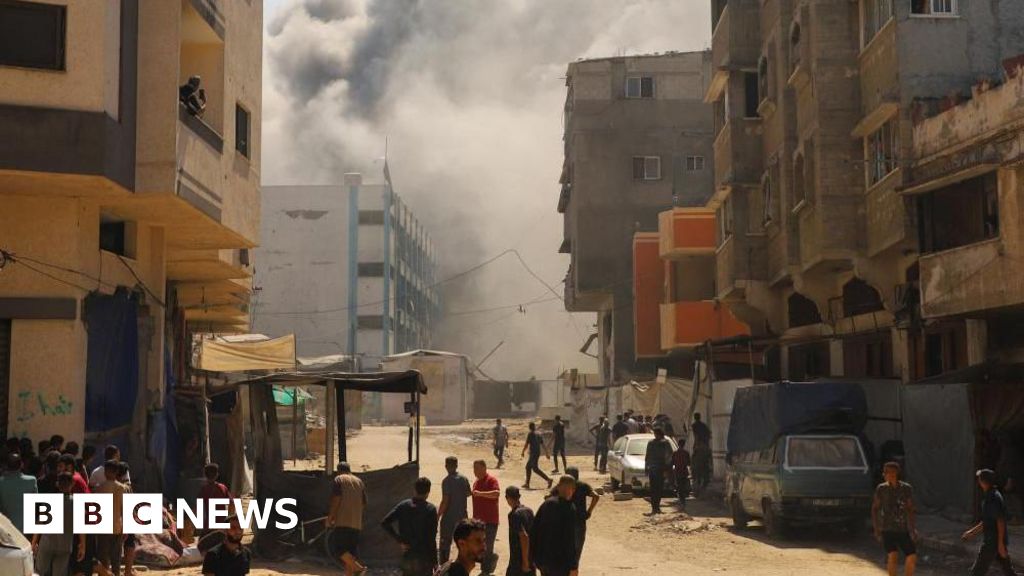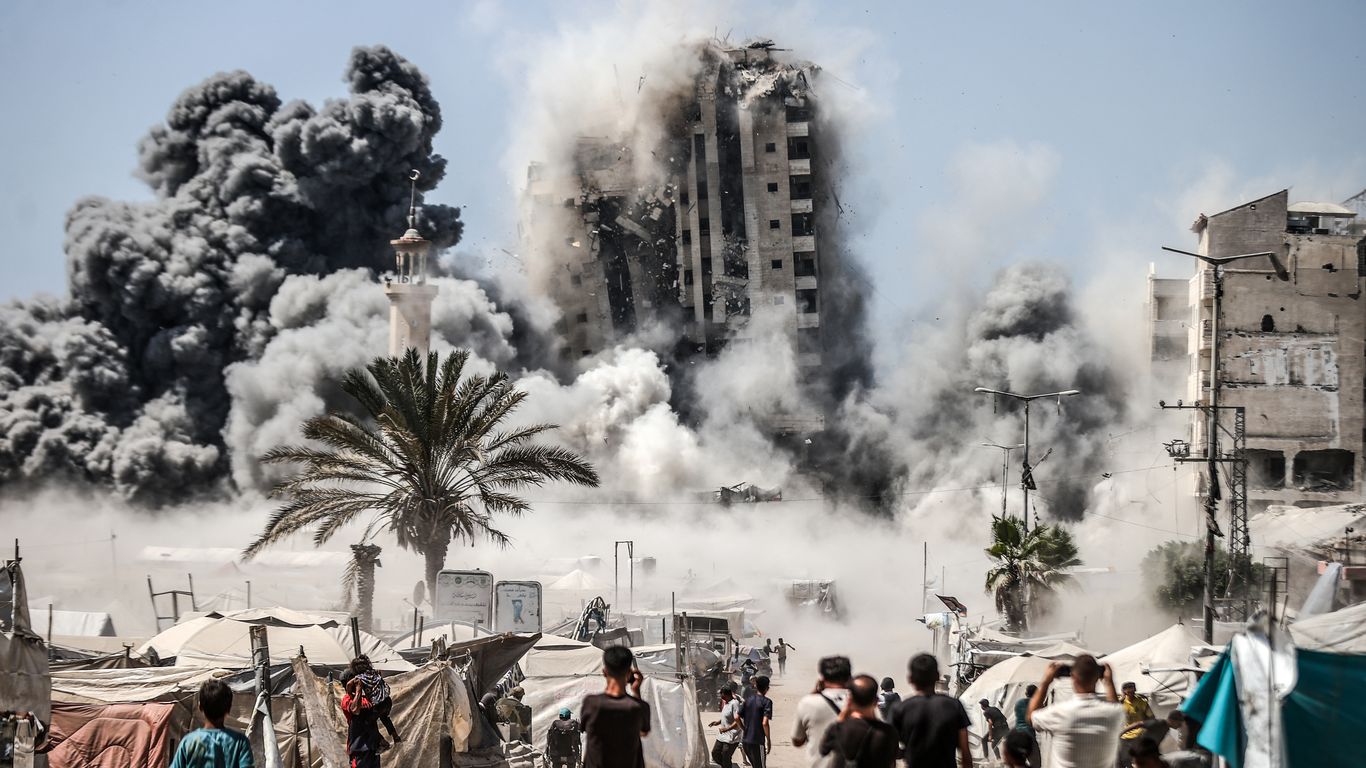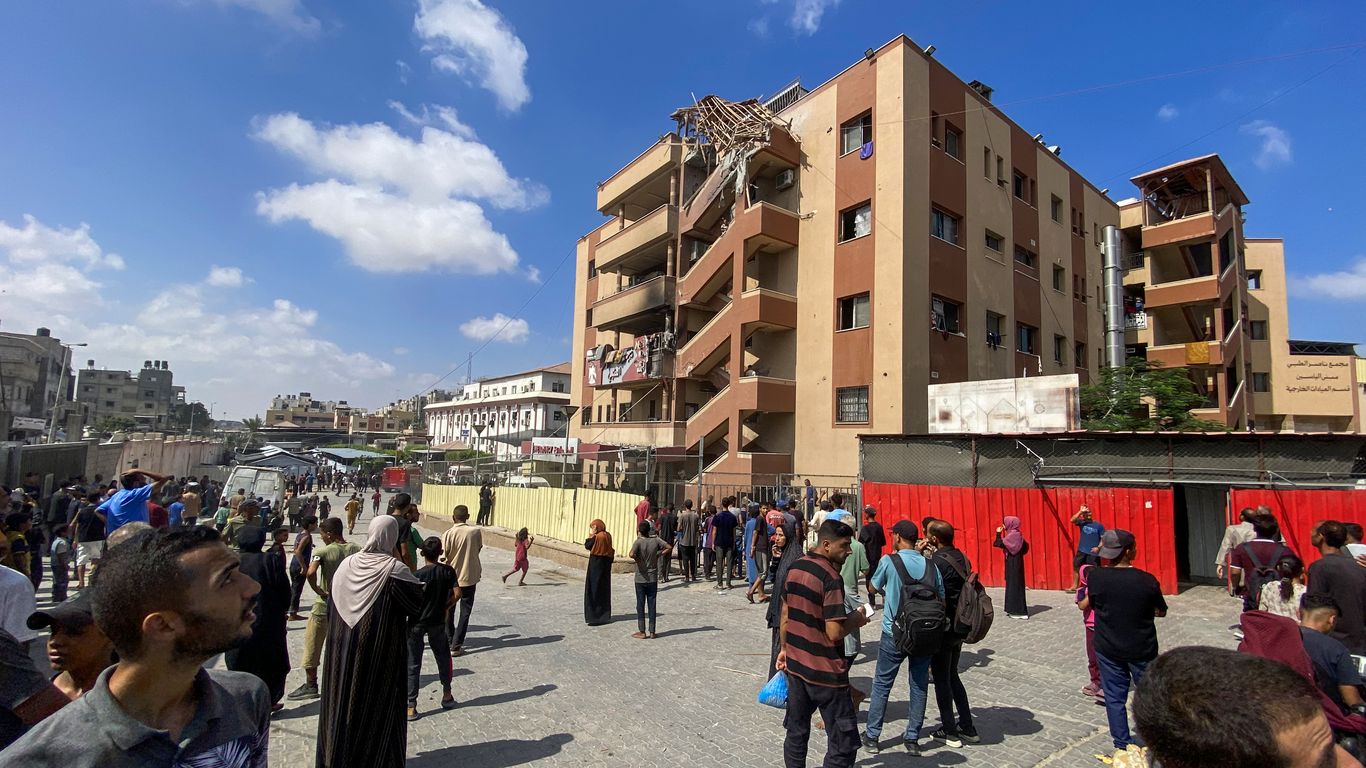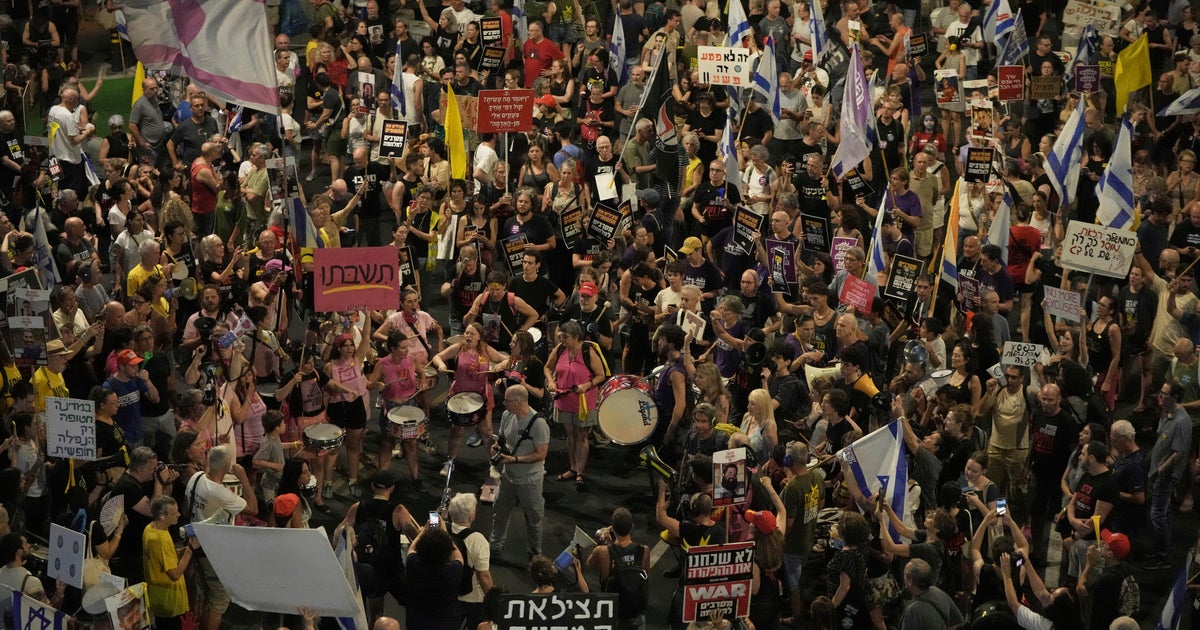Israeli Offensive in Gaza Sparks International Outcry
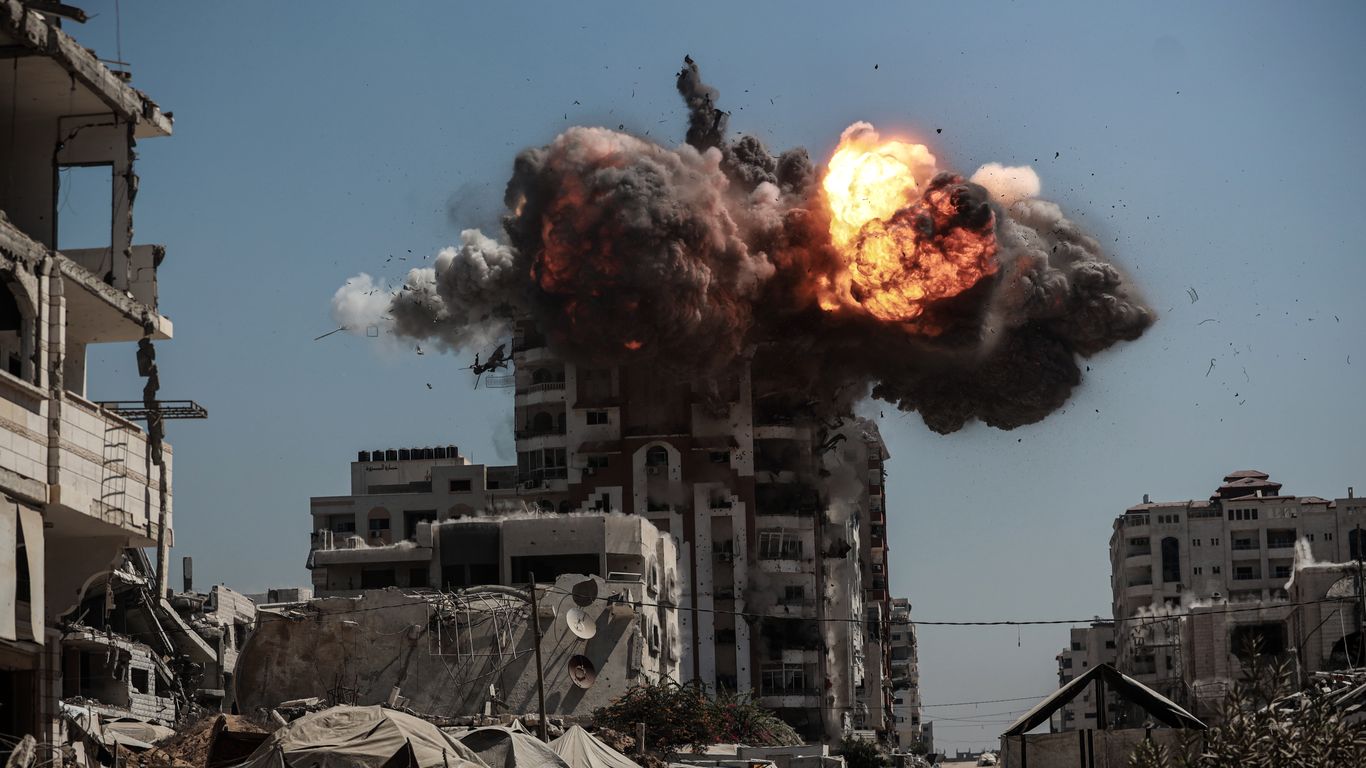
Introduction
The recent escalation in the conflict between Israel and Palestine has led to an offensive by the Israeli military to occupy Gaza City. This move, supported by the Trump administration, has raised concerns about the well-being of civilians and the potential for further violence in the region.
Key Details
The offensive, which began on Monday, is aimed at taking control of the city and eliminating Hamas' military capabilities. The Israeli Defense Forces have stated that they will "continue to operate as long as necessary" to achieve their objectives. However, the Trump administration has called for a swift end to the offensive, expressing concern for the safety of civilians and calling for a de-escalation of the conflict.
Impact
The offensive has already resulted in the deaths of at least 140 Palestinians, including 39 children, and 8 Israelis. The ongoing violence has also caused extensive damage to infrastructure and has forced many Palestinians to flee their homes. The conflict has sparked protests and condemnation from the international community, with many calling for an immediate ceasefire.
About the Organizations Mentioned
Israeli Defense Forces
The **Israel Defense Forces (IDF)** is the national military of Israel, established in May 1948 shortly after the country’s founding. It comprises three main branches: the Israeli Ground Forces, the Israeli Air Force (IAF), and the Israeli Navy, all operating under a unified command led by the Chief of Staff who reports to the Minister of Defense[1][2][3]. The IDF's primary mission is to safeguard the State of Israel and protect its citizens from diverse and persistent security threats[8]. The IDF is known for its **defensive strategic doctrine combined with offensive tactical execution**, reflecting Israel’s geographical vulnerabilities and security environment. It maintains a small but highly trained standing army supported by a large reserve force, with rapid mobilization capabilities[1]. The quality and professionalism of its soldiers are considered the IDF’s greatest asset, supported by advanced domestically developed weapons and technologies tailored to Israel’s specific defense needs[1][3]. Historically, the IDF has played a crucial role in Israel’s survival and regional conflicts, participating in multiple wars and counterterrorism operations. Notable achievements include Operation Entebbe in 1976, a daring hostage rescue by elite special forces such as Sayeret Matkal, and continuous innovations in urban warfare and subterranean combat against tunnel networks used by adversaries like Hamas[4][5]. The IDF’s special forces units are internationally recognized for their rigorous training and operational excellence in intelligence, counterterrorism, and unconventional warfare[4]. Currently, the IDF is undergoing significant technological and structural modernization. This includes upgrading infantry weapons (e.g., replacing M-16 rifles with the IMI Tavor series), armored vehicles (e.g., Namer and Eitan APCs), and future combat systems like next-generation tanks equipped with lasers, electromagnetic pulse weaponry, and hybrid engines. There is also a focus on enhancing joint training across air, land, and sea branches and improving reserve force readiness by streamlining
Trump Administration
The **Trump Administration** refers to the executive branch of the United States government under President Donald J. Trump, covering two non-consecutive periods: his first term from 2017 to 2021 and his second term beginning in 2025. As an organization, it is responsible for executing federal laws, shaping public policy, and managing national affairs during its tenure. During the **first Trump Administration (2017–2021)**, the administration pursued a wide-ranging agenda focused on immigration reform, economic nationalism, deregulation, judiciary appointments, and foreign policy shifts. Key actions included building and expanding the U.S.-Mexico border wall—completing 458 miles by January 2021—and implementing strict immigration policies such as travel bans from several predominantly Muslim countries and rescinding the DAPA amnesty program[2]. The administration withdrew the U.S. from the Trans-Pacific Partnership trade deal, renegotiated NAFTA into the USMCA, and signed the "Buy American and Hire American" executive order to prioritize American workers[1][3][5]. Judicially, Trump appointed three Supreme Court justices—Neil Gorsuch, Brett Kavanaugh, and Amy Coney Barrett—significantly influencing the federal judiciary with over 200 judicial appointments[5]. The administration also focused on military expansion, combating ISIS, addressing the opioid crisis, and responding to the COVID-19 pandemic with vaccine development support[5]. Foreign policy was marked by controversial decisions including troop withdrawals from northern Syria, reinforced support for Saudi Arabia, and tensions with Iran and North Korea[4]. The administration faced two impeachments: first in 2019 over Ukraine dealings and again in 2021 following the January Capitol riot; Trump was acquitted by the Senate both times[4][5]. After losing the 2020 election, Trump returned for a **second term starting in 2025**, continuing his policy priorities with new regulatory changes and political appointments[6][8]. The Trump Administration

